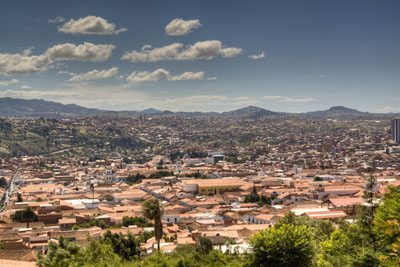Constitutional Court Issues Decision on Abortion Restrictions in Bolivia
In a ruling that marks a significant step forward for women's rights in the region, Bolivia's highest court, the Plurinational Constitutional Court, issued a decision ending the requirement for judicial authorization for women seeking legal abortion in Bolivia.

Cross-posted with permission from Ipas.
In a ruling that marks a significant step forward for women’s rights in the region, Bolivia’s highest court, the Plurinational Constitutional Court, issued a decision ending the requirement for judicial authorization for women seeking legal abortion in Bolivia.
“This court ruling represents an important step for Bolivia,” said Ipas Bolivia Interim Director Malena Morales. “It removes some of the legal barriers that women face when seeking legal abortion care.”
Monday’s decision is the latest in a growing list of judicial and legislative actions across Latin America that reduce legal barriers to abortion, a region with some of the world’s most restrictive abortion laws. In late 2013, Uruguay’s government voted to allow abortion up to 12 weeks of pregnancy, with the approval of a panel of medical and mental health providers.
“Once again a Latin American court has ruled that governments should not stand in the way of women seeking legal health services. This opinion follows earlier favorable court rulings from Mexico City and Colombia, and adds to a growing body of national and international jurisprudence that affirms women’s rights to legal abortion,” said Gillian Kane, Ipas senior policy advisor.
Bolivia’s 2009 constitution extends equal treatment under the law to all Bolivian citizens, including women and indigenous peoples. Legislator Patricia Mancilla, an indigenous member of the Bolivian Chamber of Deputies, initiated the court’s review of penal code provisions that criminalized abortion. In March 2012 she filed a challenge to the constitutionality of several penal code articles that discriminate against women.
The court ruling includes several significant points:
- The decision to keep or terminate a pregnancy rests with the pregnant woman and will be not be subject to the ideologies or religious beliefs of judges or attorneys.
- By eliminating the requirement of a judge’s authorization, the decision will improve timely access to safe abortion services in cases where it is permitted by law (rape, statutory rape, incest, kidnapping not followed by marriage, risk to the woman’s health and life).
- In cases of rape, the decision affirms a woman’s right to seek an abortion; however, she is still required to file a complaint with the police or prosecutor.
- In cases where there is a threat to the woman’s life or health, the diagnosis of a physician is sufficient to authorize a legal abortion.
The Court’s ruling is consistent with international law and recent recommendations by the United Nations’ Human Rights Committee and the U.N. Committee Against Torture. In 2013, both Committees recommended that Bolivia eliminate requirements for judicial authorization in order for women to have a legal abortion. International human rights bodies have noted that denying women access to legal abortion care can violate numerous human rights, including the right to health, information, nondiscrimination and freedom from torture. Reproductive health and rights leaders across Latin America are increasingly calling on governments to fulfill women’s human rights by eliminating legal restrictions on abortion.
“While this decision is a positive change in Bolivia’s punitive abortion laws, it is only a first step,” said Kane. “There are still significant legal barriers that many women will not be able to overcome, and we know they will turn to unsafe abortion. We will continue to support efforts in Bolivia to bring the country more in line with international human rights standards.”
Studies show that restrictive abortion laws neither prevent nor reduce the incidence of abortion, but rather force women to resort to unsafe, clandestine procedures. In countries where abortion is illegal, the risk of women’s death and injury from abortion is 30 times higher than in countries where abortion is legal. Most Latin American nations permit abortion only to save the woman’s life, while Chile, Nicaragua, and El Salvador ban abortion completely. Ninety-five percent of all abortions across Latin America are clandestine and unsafe.

